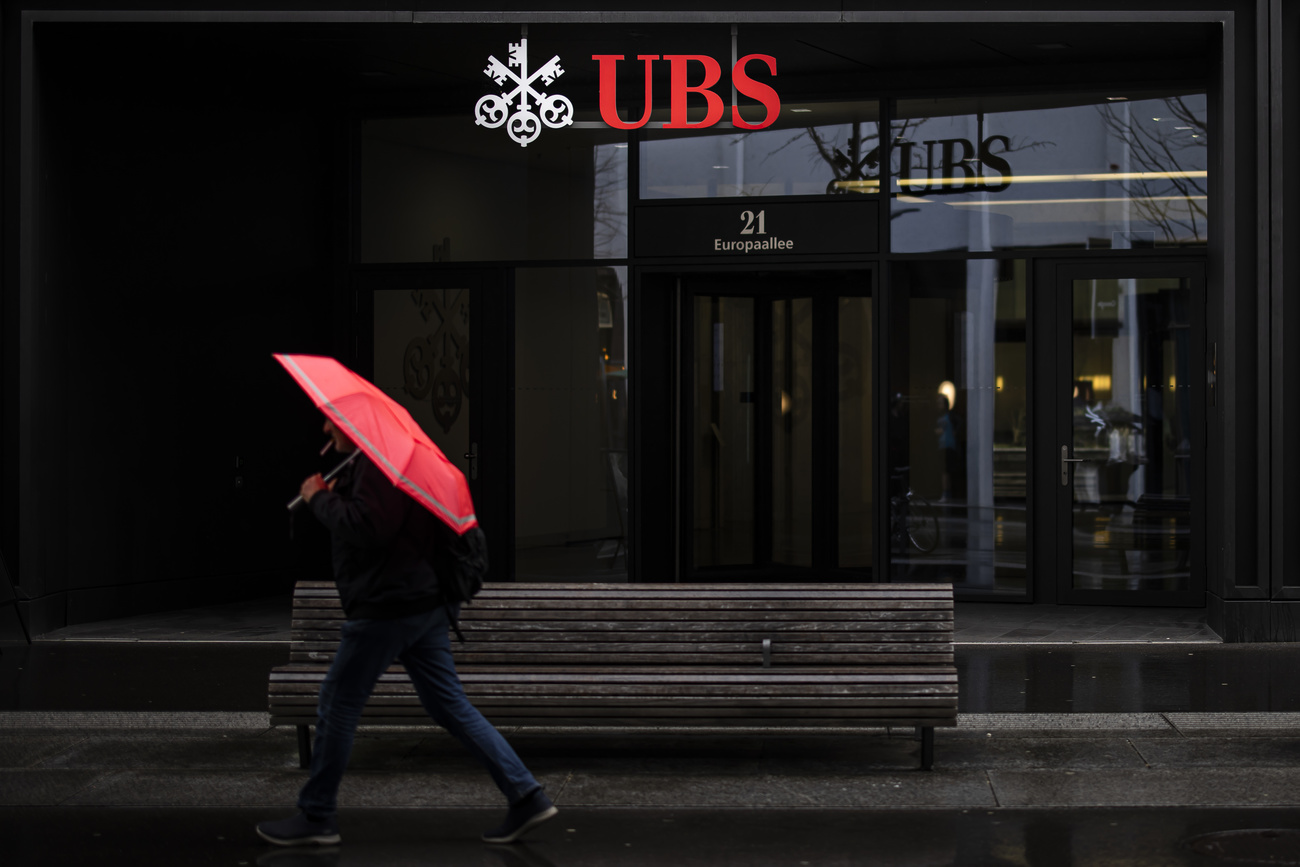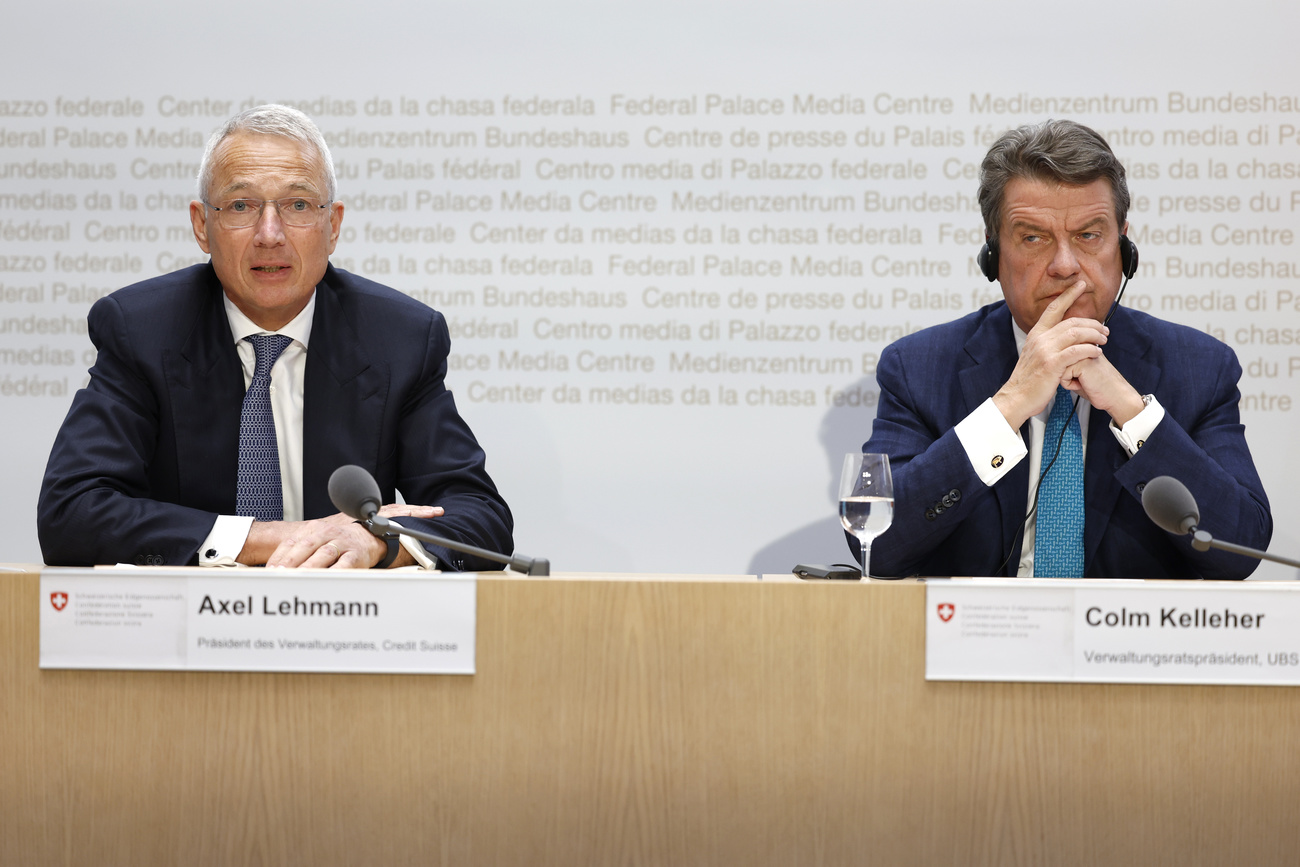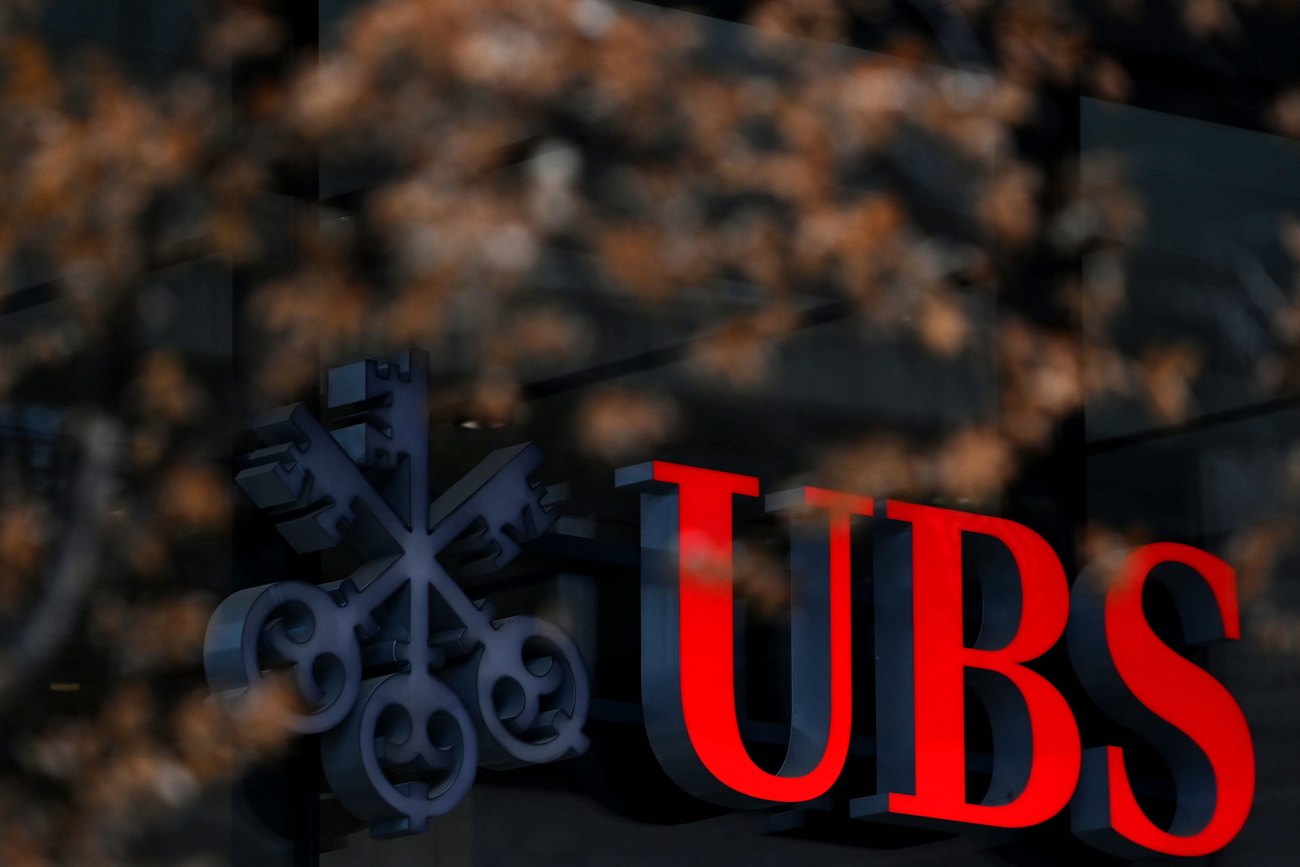Saudi silence after the Credit Suisse crash

It was statements by the chairman of the Saudi National Bank, the largest shareholder of Credit Suisse, that spelled the beginning of the end for Switzerland's second-biggest bank in the space of a week – and ultimately led to the end of his career.
The acquisition of Credit Suisse by UBS has resulted in major losses for shareholders in the Arab world. Despite the silence of Saudi officials in the aftermath of Credit Suisse’s collapse, the reactions in the Arabic-language media have been varied.
The chairman of the Saudi National Bank, Ammar Al Khudairy, told Reuters on March 15 that the bank would not provide more money to Credit Suisse for regulatory reasons.
“Well, we cannot,” Al Khudairy said. “We cannot because we would go above 10%. It’s a regulatory issue.”
Al Khudairy added that the Saudi National Bank (SNB) was pleased with Credit Suisse’s plan to turn its business around and didn’t anticipate that the bank would require additional funds. However, he also noted that his bank would sellExternal link its shares once they had acquired prober value.
+ Read more: Saudi National Bank chair resigns after Credit Suisse comment
A few hours later, Al Khudairy attempted to undo the damage caused by his earlier remarks, telling Saudi Arabian television Al ArabiyaExternal link that “my statements about Credit Suisse were interpreted incorrectly”. He then repeated that his institution could not increase its investment in Credit Suisse due to regulatory constraints limiting its holding to below 10%.
Asked again if the Saudi bank intended to exit the Swiss bank, Al Khudairy said, “at present, no”. The statements of Al Khudairy led to losses in Credit Suisse’s stocks by as much as 25% over the course of the day, according to Al Arabiya, which has close ties to the Saudi state.
The straw that broke the camel’s back
Coming as they did on the heels of the bankruptcy of two banks in the United States, Al Khudairy’s comments had a seismic impact on the financial world.
Credit Suisse, which for years has been plagued by scandals and was in the midst of a restructuring process, had its credibility shaken by these statements. A bank run ensued. Credit Suisse depositors were withdrawing more than CHF10 billion ($10.92 billion) a day. The bank experienced a continuous sharp decline in share price, prompting it to seek stability by borrowing up to CHF50 billion from the Swiss National Bank. But it was too late for any resuscitation attempts.
After the landmark acquisition of Credit Suisse by UBS, which caused major losses for shareholders in the Arab world – particularly those in Saudi Arabia and Qatar – reactions in the Arabic-language media have been mixed. While some focused on the impact of the deal on shareholders, others highlighted the emergence of UBS in the banking sector and the creation of the world’s largest wealth management entity.
Yet despite criticism on social media of the SNB Al-Ahli Bank – as the Saudi National Bank is also known – for its risky investment in Credit Suisse and subsequent losses, the comments made by Al Khudairy have been swept under the rug.
Apart from confirming the minimum loss of wealth, Saudi officials had given no notable reaction to events in Switzerland, until last Monday.
In fact, the other Saudi reaction came one week after the collapse of Credit Suisse, with Monday’s announcement of the bank’s board chairman’s resignation for “personal reasons”.
Even after the resignation of the chairman – who had previously stated that his bank would exit Credit Suisse once the stock price increased – Al-Arabiya did not touch on Credit Suisse, which had been dealt a decisive blow by the statements of Al Khudairy.
No regrets
In an article looking back at the bank’s demise featuring the headline “Credit Suisse’s story from the beginning: This is how it reached crisis point!”, Al Arabiya External linkblamed Credit Suisse itself.
The recent decline in share prices, the channel said, had come after a series of scandals over several years, along with changes in top management, billions of dollars in losses, and an uninspiring strategy – these are what caused the chaos now facing the Swiss lender.
Al Arabiya claimed an imminent failure of the bank last autumn had led to customers fleeing. Credit Suisse confirmed in February that clients had withdrawn CHF110 billion in the fourth quarter of 2022 alone, while the bank incurred its biggest annual loss since the financial crisis, to the tune of CHF7.29 billion. Additionally, the bank had sought the help of investors last December by selling shares worth CHF4 billion.
Woah.
— unusual_whales (@unusual_whales) March 20, 2023External link
A reporter asks Credit Suisse, $CSExternal link, Chairman Axel Lehmann: "Who is responsible for this disaster?
He says: "… last autumn we had a social media storm." pic.twitter.com/7gCy4RLm0kExternal link
The last ones to know about the UBS deal
Similarly, the private Saudi newspaper AsharqExternal link noted that the Middle Eastern shareholders of Credit Suisse, who collectively own about a fifth of the Swiss bank, are among the biggest losers in the turmoil. They were also the last to know about the low-price acquisition made by UBS, the paper claims.
Asharq says that it is unclear whether the Swiss government consulted major shareholders before disclosing the deal with UBS, which came after speedy discussions last weekend.
Mark Nesim, a partner and managing director at Dubai-based Awad Capital, described the UBS agreement as a “done deal” for shareholders.
“There is always a government somewhere ready to intervene to protect its national interests, away from all shareholders,” Nesim is quoted as saying. “So the ultimate decision-makers of bank shareholders are governments, whether in the United States, Europe, or other regions.”External link
The online newspaper Arabi21External link went with the headline “$1.2 billion of Saudi investments in Credit Suisse evaporated”. In fact, the Saudi National Bank saw the value of its investments drop by about $1billion within months. The crisis also had an impact on the holdings of the Qatar Investment Authority, a Credit Suisse shareholder of long standing that increased its stake in the bank only last January, according to the Qatari newspaper Alaraby.External link
Despite this, the Saudi National Bank said in a statement that according to the financial statements for the year 2022 and financial projections for 2023 announced earlier, its investment in Credit Suisse Group represents less than 0.5% of the total assets of the SNB Al-Ahli Bank and 1.7% of the bank’s investment portfolio as of December 2022. The bank clarified that any change in the fair value of the investment in Credit Suisse Group would not affect the bank’s financial projections and plans for 2023.External link
Criticism on social media
Despite officials downplaying the impact of the Credit Suisse crisis on their investment funds, social media platforms were not free of criticism of Arab-world shareholders of Credit Suisse.
Ahmed Khatib, an economics analyst and former presenter of the television programme Between Numbers at CNBC, took to Twitter to express his opinion about the criticism of the Saudi bank and highlighted the discrepancy in the reaction reserved for the Saudi executives of SNB Al-Ahli Bank compared to Credit Suisse executives.
“I read criticisms on Twitter of the executives at Al-Ahli Bank for their investment losses in Credit Suisse (which represents 0.5% of the bank’s assets), while the executives at Credit Suisse, who caused the entire bank to crash, are waiting to receive their bonuses 😂 (the Swiss National Bank has temporarily suspended payments).”
What’s next?
The newspaper AsharqExternal link presented several scenarios for the future and said that other banks are seeking to seize the opportunity from the Swiss financial market after the collapse of Credit Suisse.
However, the newspaper says it is too early to say whether the failure of three American banks and the collapse of Credit Suisse represent the peak of the crisis, as problems at First Republic Bank, a regional American bank, show that financial fragility concerns have not yet dissipated.
On the other hand, the online newspaper economy sceneExternal link sees UBS emerging as a dominant player in the banking sector. By buying up its main rival Credit Suisse, the bank could come to dominate the wealth management industry.
It will become the world’s largest wealth management entity, worth some $4 trillion, according to the newspaper.
These funds represent approximately 6.2% of total individual wealth management worldwide, where the investments of each individual depositor exceeds by over $1 million.
The deal included a special concession for the asset management unit to preserve the profitable Swiss unit of Credit Suisse Bank, which some analysts say is worth more than three times the amount paid in the entire dealExternal link, according to economy scene.
Edited by Reto Gysi von Wartburg. English-language editing by Geraldine Wong Sak Hoi.

In compliance with the JTI standards
More: SWI swissinfo.ch certified by the Journalism Trust Initiative













You can find an overview of ongoing debates with our journalists here . Please join us!
If you want to start a conversation about a topic raised in this article or want to report factual errors, email us at english@swissinfo.ch.